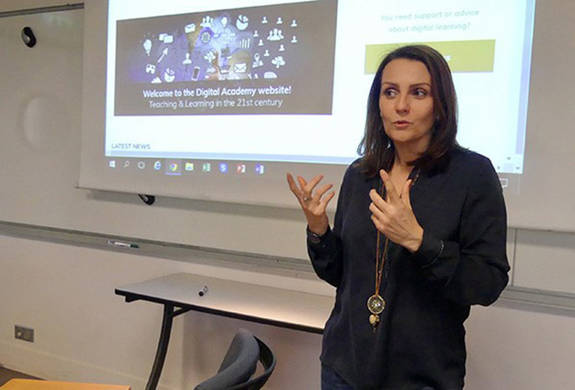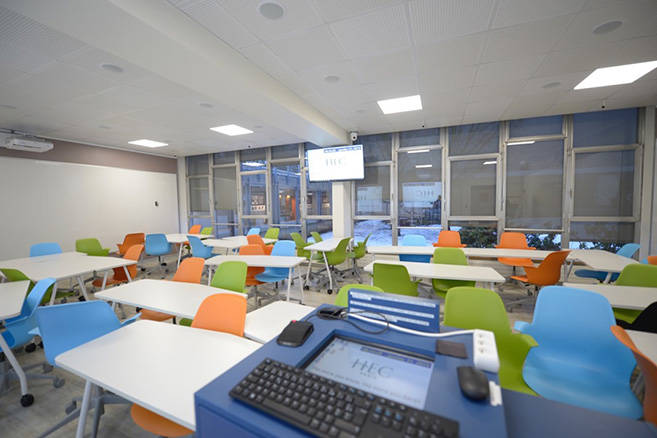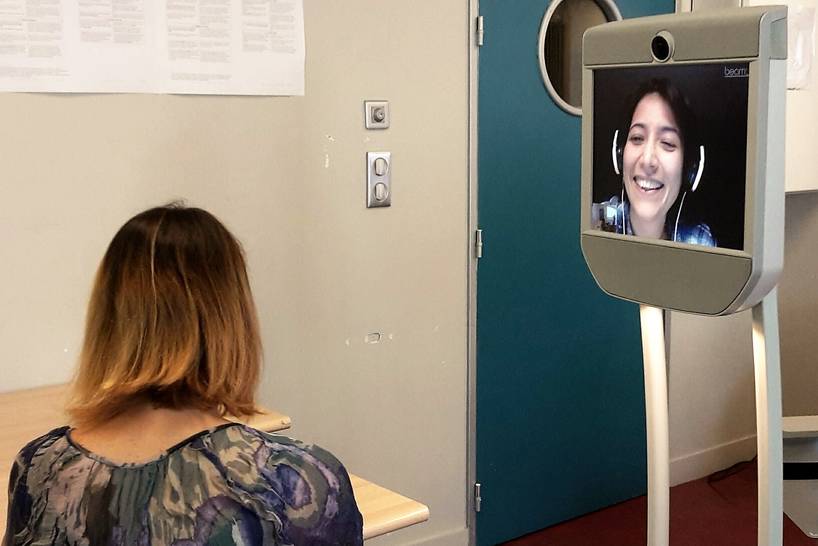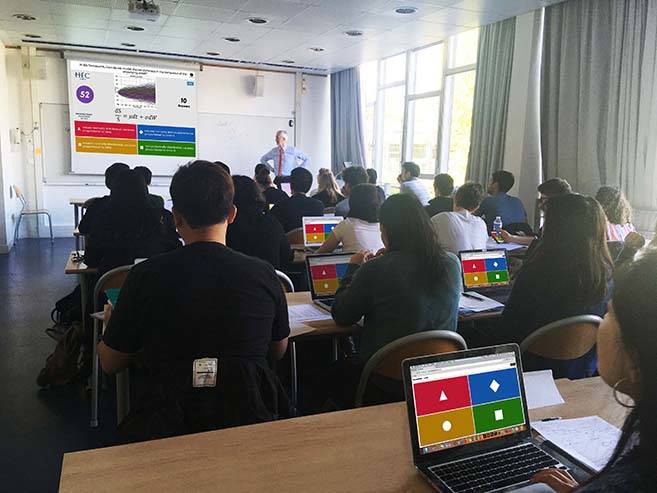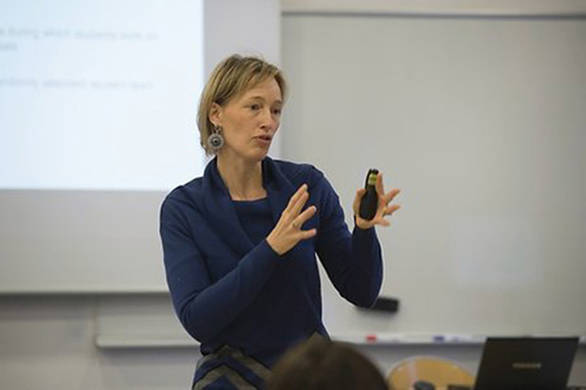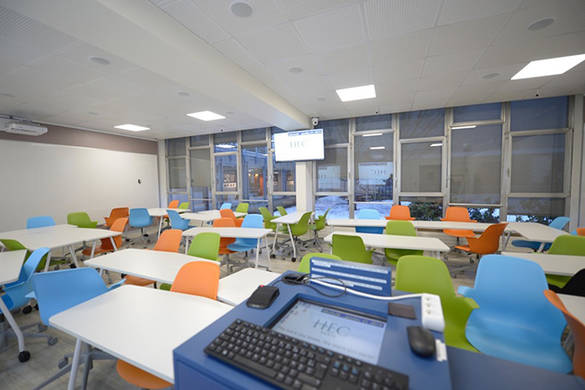Hello Caroline. How does HEC Paris innovate its education with technology?
With the evolution of technology and in the era of social media, education has undergone many changes. A new theory of learning has even emerged, Connectivism (Siemens & Downes, 2008). Teaching without technology is nowadays impossible, not only because technology is part of our everyday life, but also because digital tools can really improve learning, if used effectively. For example, research shows that live-polling tools increase attention and engagement; discussion boards facilitate collaborative learning; and videos are an effective way of engaging students and supporting their understanding.
Our professors not only integrate in their courses the online content and resources they have developed. They also use digital tools inside the classroom or beyond classroom time to support students’ learning.
At HEC Paris, our professors not only integrate in their courses the online content and resources they have developed (videos, simulation games, etc.). They also use digital tools inside the classroom or beyond classroom time to support students’ learning. In addition, some of them are experimenting with new forms of pedagogy such as the flipped classroom methodology or blended learning, which are highly appreciated by students.
How do you adapt to this fast-changing environment in education?
New technologies for education are rapidly changing and we see more and more providers offering new solutions. So on one hand, we need to stay informed about all of these new tools and test them. On the other hand, we always need to ask ourselves: “Does this tool or solution really add value to a course?” If not, we don’t propose it to our faculty.
Like many schools, we have an LMS (Learning Management System) which is now used by most of our professors to share teaching material, create online activities or assignments, or even to deliver small online courses. On top of that, we offer a range of various solutions like live-polling apps, a virtual classroom tool, telepresence robots, a mini-video studio, etc.
We have equipped several rooms to run webinars. Professors and students can also book a “creative room” or “co-working room” at the HEC Learning Center (library) (with interactive white boards, writable walls, a camera and movable furniture) to experiment with more interactive forms of pedagogy.
How do we motivate professors to change their teaching habits?
To me, two elements are very important to embark our faculty in digital learning: communication and support. The first one is to communicate about professors’ initiatives. We always have some “early adopters” who are experimenting with new teaching formats or testing new tools in the classroom. When the outcome is positive, we need to share this information in order to inspire others.
I recently created an internal website called “Digital Academy” where professors and staff members can find information about the different tools available at HEC and the online programs we have developed, as well as many faculty testimonials on how they use digital in their courses. I have also started sending a very simple newsletter to the entire faculty, with updates on the digital learning initiatives taken by professors. It is very successful: after each publication, numerous professors contact me to discuss about how they can start using digital tools.
To me, two elements are very important to embark our faculty in digital learning: communication and support.
The second element is to provide strong support. Using technology can be time consuming for professors, not only because they need to master the tool but also because it usually involves a redesign of their teaching scenario. It is a long-term time investment. So, the HEC Digital Learning team is here to help them make the right choices.
Implementing digital learning into a faculty can also be driven by the needs of a specific program. For example, as our Executive MBA wished to reduce the face-to-face time by 10% and replace it with distance learning, the professors involved in this program had to develop online activities (such as virtual classrooms, online videos, simulation games, etc.). Again, with strong support and good communication, we managed to reach this objective!
Test your knowledge on e-learning online with this quiz!
